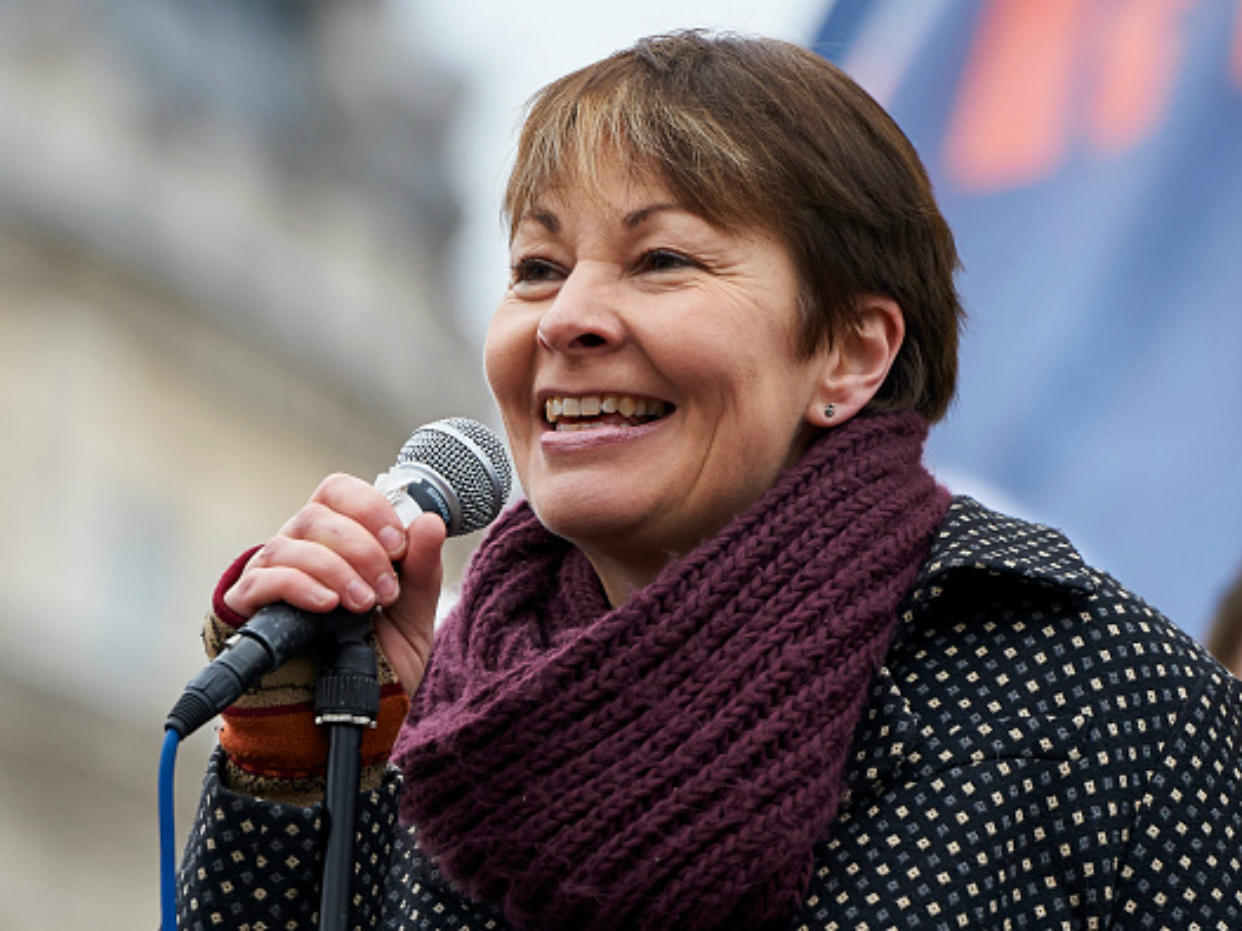Could an all-female cabinet end the Brexit impasse?
Caroline Lucas calls for women-only cabinet to block no-deal

A free daily email with the biggest news stories of the day – and the best features from TheWeek.com
You are now subscribed
Your newsletter sign-up was successful
Green Party grandee Caroline Lucas has called for an all-female cabinet to break the Brexit deadlock.
Writing in The Guardian, the MP for Brighton Pavilion says: “We need an ‘emergency cabinet’ – not to fight a Brexit war but to work for reconciliation. And I believe this should be a cabinet of women.”
The proposed cabinet would topple Boris Johnson through a no-confidence vote and establish a temporary cross-party government in order to offer a second referendum on Brexit, explains Lucas, who adds that she has “reached out to ten women colleagues from across the political spectrum at Westminster and Holyrood”.
The Week
Escape your echo chamber. Get the facts behind the news, plus analysis from multiple perspectives.

Sign up for The Week's Free Newsletters
From our morning news briefing to a weekly Good News Newsletter, get the best of The Week delivered directly to your inbox.
From our morning news briefing to a weekly Good News Newsletter, get the best of The Week delivered directly to your inbox.
“This is not an attempt to replace one coup with another,” she continues. “A small group of us should not be deciding on Britain’s future and that is not what lies behind my initiative. But we need to find a way forward that allows the British people to decide which course they want to take.”
Explaining the reasoning behind the plan, Lucas, who has twice served as Green Party leader, told the BBC’s Today programme: “In my experience, women tend to be less tribal, they tend to find it easier to establish trust more quickly.”
But not everyone is convinced, with Tory MP Liz Truss tweeting: “Is there anything more sexist than claiming your gender determines your worldview/behaviour/attitude?”
Has there ever been an all-woman cabinet in the UK?
A free daily email with the biggest news stories of the day – and the best features from TheWeek.com
No. The highest number of women to serve concurrently in a cabinet was eight, when women made up 36% of Tony Blair’s cabinet in 2006-07.
Johnson has failed to include any women in his Brexit “war cabinet”, with men appointed to all six posts in his strategy committee, reports HuffPost.
“The inclusion of women shouldn’t be an afterthought,” Gemma Rosenblatt, head of policy at the Fawcett Society gender equality charity, told the news site. “Women’s voices need to be heard on this crucial issue.”
Johnson’s predecessor Theresa May was criticised by Tory MP Nicky Morgan for appointing men to the top 14 places in her cabinet.
The gender imbalance of power is a long-running problem at Westminster. In 2014, Prime Minister David Cameron had more dinners with people called David than he did with women, reports The Guardian’s Zoe Williams.
On a global scale, the picture is no better. According to a UN report published in January, only 20.7% of the world’s national government ministers are women, and 24.3% of all national parliamentarians.
Are women better politicians than men?
The UN report says: “There is established and growing evidence that women’s leadership in political decision-making processes improves them.
“Women demonstrate political leadership by working across party lines through parliamentary women’s caucuses - even in the most politically combative environments.”
That message doesn’t seem to have got through to Britain’s political parties, however. The 2015 general election put the UK in 36th place worldwide for women’s representation, leaving it “lagging behind several of its European counterparts, as well as many African and Latin American countries”, according to the Political Studies Association.
In the US, only 19% of senators are women, The Atlantic reports. Critics of the US system argue that the dominance of male lawmakers may be a key reason for the polarised state of partisan politics and resulting political inaction in the country.
“What I find is, with all due deference to our male colleagues, that women’s styles tend to be more collaborative,” Republican senator Susan Collins told ABC News in 2012.
Kelly Dittmar, a political science professor at Rutgers University’s Center for American Women and Politics, told The Atlantic: “Women just want to get things done. They’re not in it for the show.”
Although the evidence is limited, that which is available appears to bear out such an assertion. A 2011 study found that, between 1984 and 2004, US congresswomen “sponsored more bills (an average of three more per Congress), co-sponsored more bills (an average of 26 more per Congress), and attracted a greater number of co-sponsors than their colleagues who use the other restroom”, says Newsweek.
Where do female MPs stand on Brexit?
Of the 111 MPs listed by The Sun as having publicly called for a second Brexit referendum, 54 are women (49%).
The list includes Conservative former education secretary Justine Greening, who says that a people’s vote is the “only solution is to take the final Brexit decision out of the hands of deadlocked politicians”.
Among the other strong female pro-Brexit voices in the Commons is that of Kate Hoey, who is part of a small group of Labour MPs campaigning for a hard Brexit, reports Politico.
The Vauxhall MP told Labour Leave: “You cannot actually say the Brexit Party is right-wing…there are so many people who have joined the Brexit Party who are from the left.”
If women only had been allowed to vote in the 2016 EU referendum, the UK would have stayed in the bloc. Just over half (51%) of women voted to remain, compared with 45% of men.